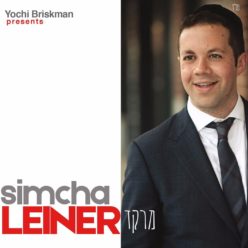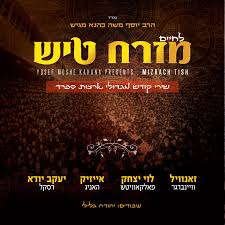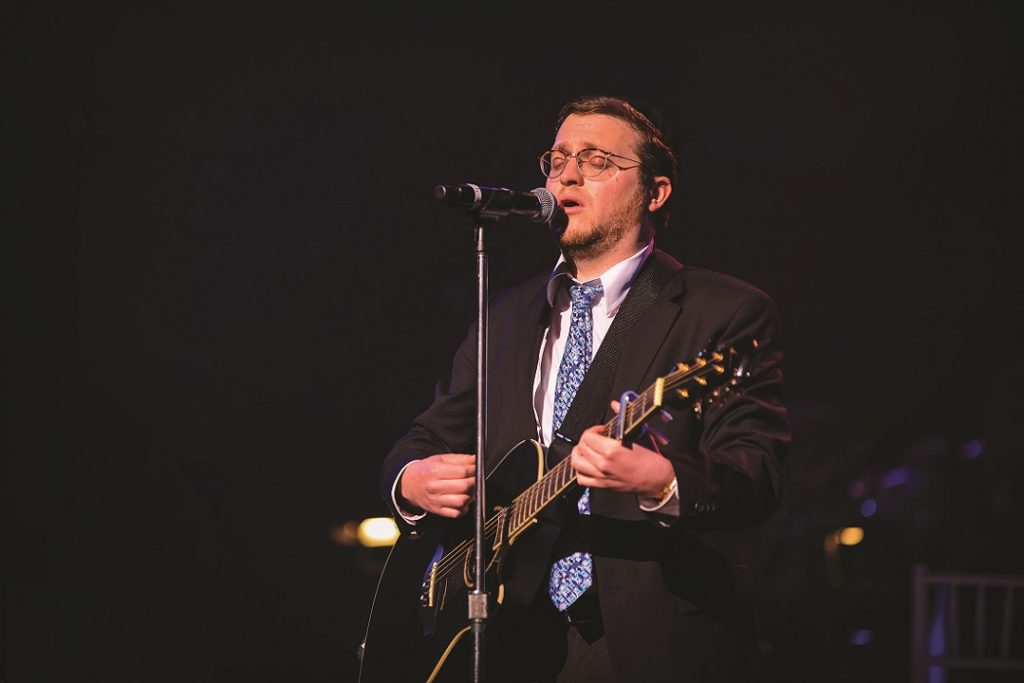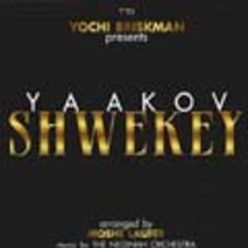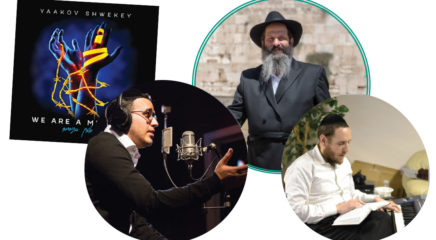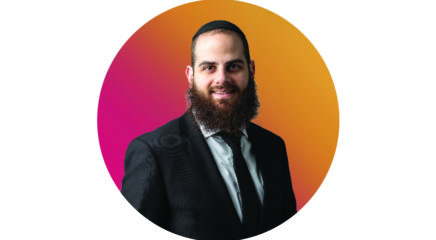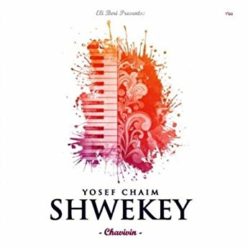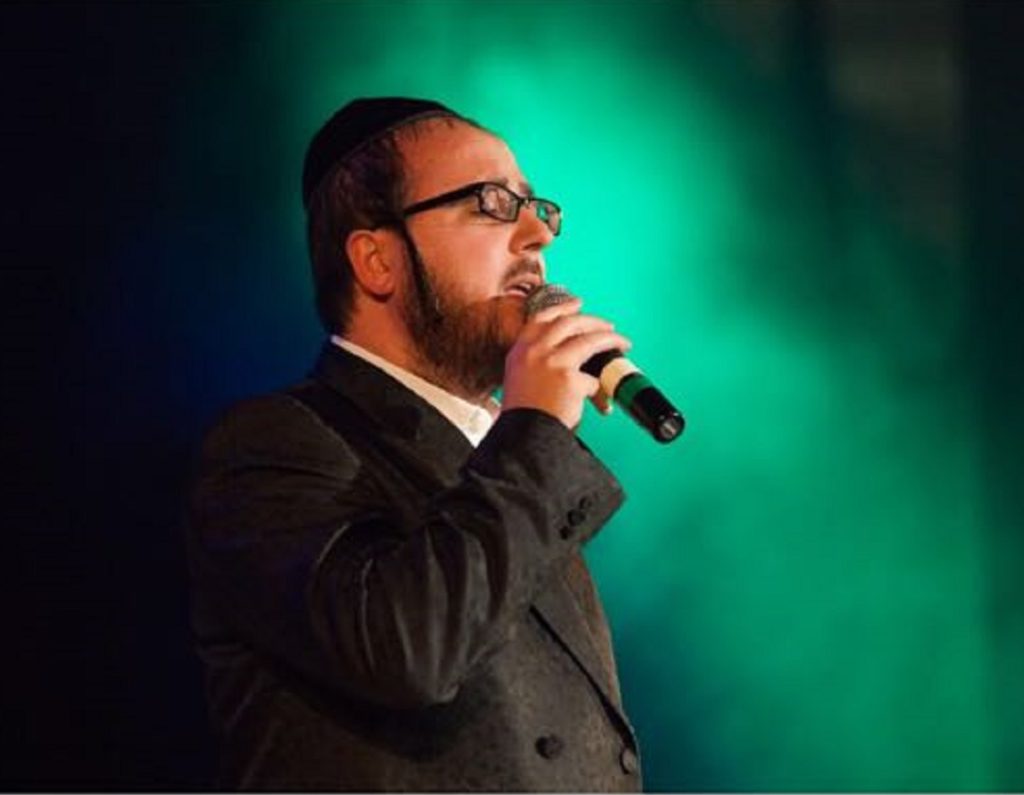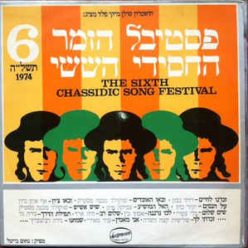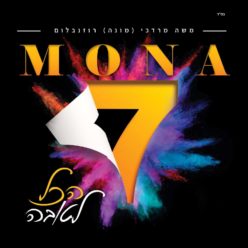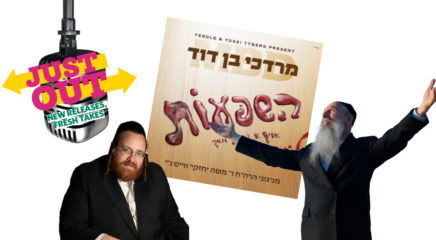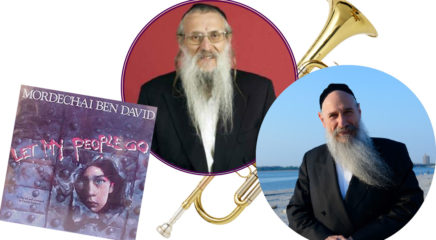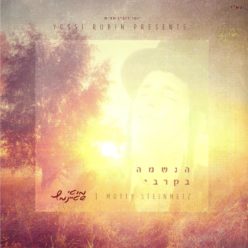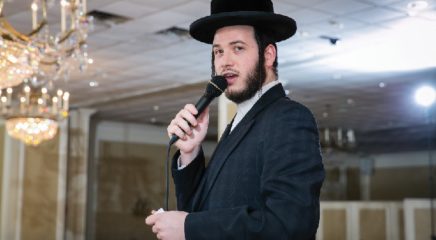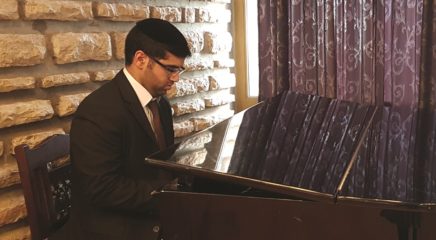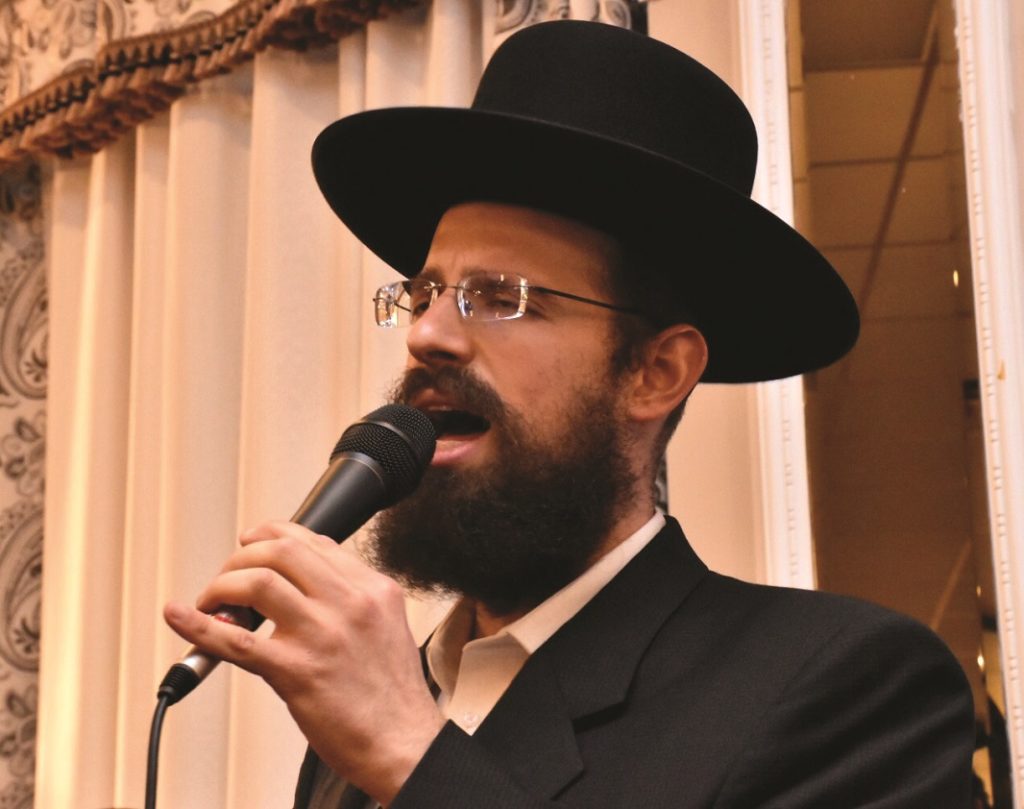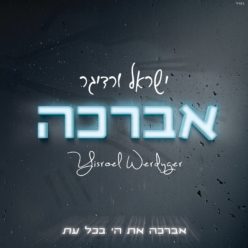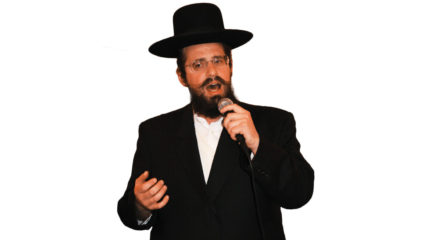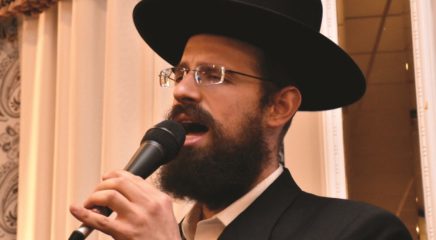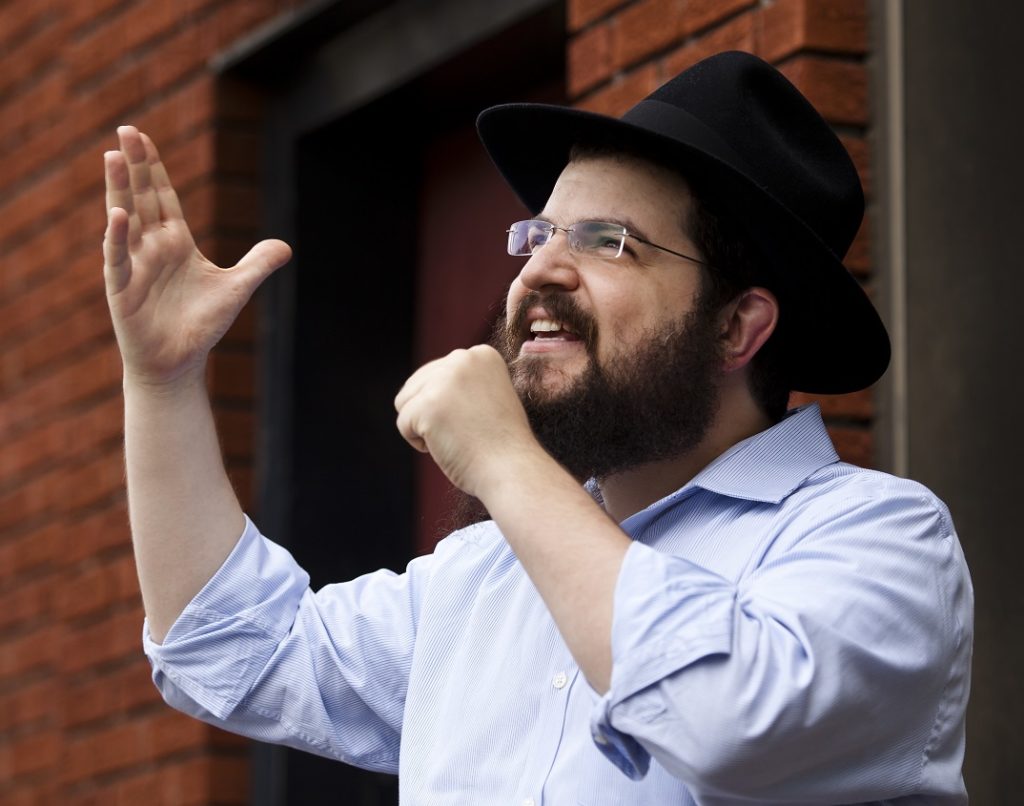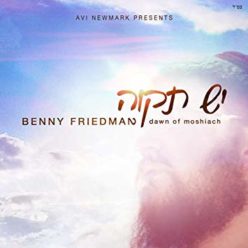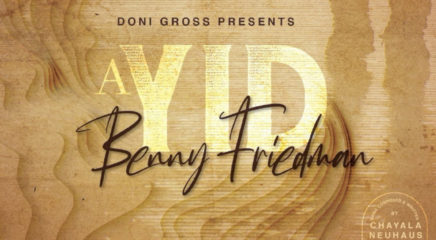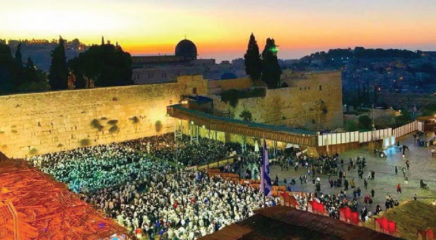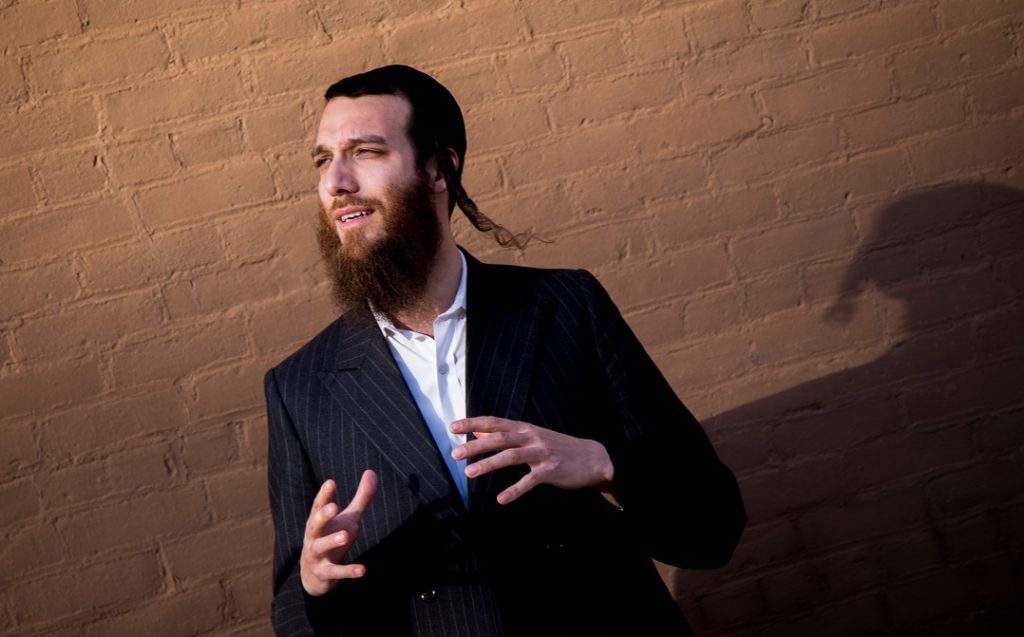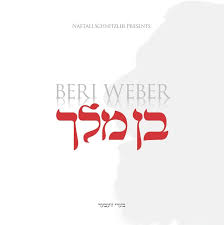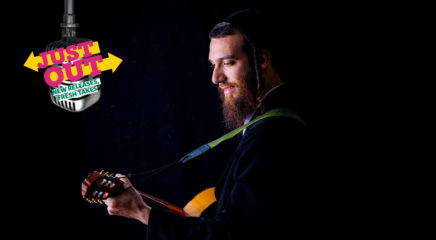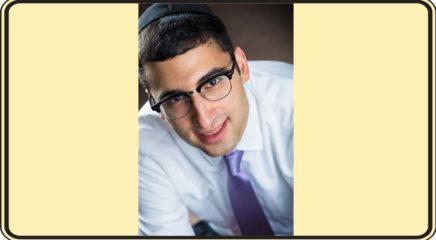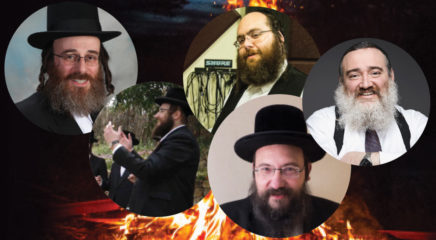W ith Motty Steinmetz’s debut album Haneshama Bekirbi flying off the shelves among the heartwarming songs his fans are enjoying is a long Yiddish ballad entitled “Brivele” which brings home the power of reciting Tehillim. The composer badchan Motti Ilowitz explains his parable: “A king has a beloved servant a writer who writes him eloquent letters of loyalty and longing. When the writer dies the courtiers comfort and revive the king’s spirit by reading the beautiful letters. They know that with those letters in hand they can always approach and win the king’s favor by drawing on the memory of this most favored subject. To say a kapitel of Tehillim is to approach the Ribbono shel Olam with the letters of his beloved servant Dovid Hamelech.”
Ilowitz says that when he heard this concept it changed his attitude toward Tehillim forever and inspired him to write and compose “Brivele.” And he’s humbled that he’s been able to pass on that profound and comforting idea. “A man of 90 told me that he looks at his regular recitation of Tehillim differently now. If only we would realize what a treasure we hold in our hands.”
Mic Drop: What is that instrument?
“I arranged the Carlebach set for Yaakov Shwekey’s recent nostalgic release Those Were the Days says musician and arranger Avrumi Berko. “We used something a little different in that medley a middle Eastern instrument called the baglama. That’s a string-plucked instrument used mainly in Turkey and I think it added beautiful flavor to those arrangements.”
Stay Glued to a Maestro
Arranger conductor and musical director Yuval Stupel studied music for years but conceded that his formal musical education is dwarfed by what he learned on the job when he played under Mona Rosenblum in the IDF Rabbinical Choir. “For three years I was practically glued to Mona and I learned what no music school could have taught me about concerts and recording. I owe Mona a lot and truthfully he was the musical genius who touched everyone in my generation. All of us gained from his incredible skill knowledge and experience.”
SINGING WITH TATTY
When the show’s over the curtain comes down and the lights and mics are off you return home to the most important audience of all — your nearest and dearest.
When it comes to family time what do you sing at home with your kids (and eineklach)?
Benny Friedman: "They love to sing the songs from our new children’s DVD The Rebbe’s Niggunim [with Benny Friedman 8th Day Eli Marcus and more —Ed.]: songs like “Hey Hey Asader Leseudasa” “Darkecha Elokeinu ” and other songs the Lubavitcher Rebbe taught which are brought to life so children can connect."
Yonatan Razel: "I like to play guitar with my children and compose with them while putting them to sleep. I’ll sing some of the slower Shlomo Carlebach songs like “Besheim Hashem Elokei Yisrael” and “Kechu Imachem Devarim” and also some of my brother Aharon’s sweet songs. Sometimes I also do special compositions just for them"
Yitzy Waldner: "On Shabbos it’s usually just zemiros. When I’m putting my children to bed I sometimes make up songs and stories for them as we go"
Rabbi Eliezer Kalish: "In addition to zemiros we sing well-known chassidish songs. On Friday night it’s “Zechor Ahavas Kedumim” and “Oy Yoy Yoy Shabbos ” and Shabbos day we sing my own “Kesser ” “Kevodo ” and “Bircas Kohanim.” We get creative too. In fact many of my songs were composed together with my children around the Shabbos table"
Ari Goldwag: "My personal taste leans toward the music of Aharon Razel and Yonatan Razel. I love their musicality their lyrics and their musical chiddushim. My kids and I often sing their songs together"
Naftali Schnitzler: "Usually the latest hit songs out there. Right now it’s “Neshamah Vi Bist Di ” “Ve’ahavta ” and “Yoimum ” and of course “Emes V’emuna” [which Schnitzler composed for Shmueli Ungar —Ed.]. Sometimes I may teach them a new song I’m working on… I really like to see whether they grab on to it so I know if it will be a good fit for others to catch on to. But honestly I see the kids grabbing on to almost anything; they learn fast. It’s the 25-plus folks that always yearn for the older songs they grew up on."
Chaim Banet: "When the family gets together we like to sing old-time chassidish songs. The Skulener Rebbe’s niggunim and the compositions of Reb Yitzchok Ungar of Vizhnitz are favorites"
Baruch Levine: "We always sing oldies. My own music is my work so I’m always critiquing while other people’s music is pleasure so we’ll play a lot of Journeys and old Miami Boys Choir at home. Within the family my songs don’t hold a candle to the latest camp theme songs my girls bring back after the summer."
(Originally featured in Mishpacha Issue 687)


